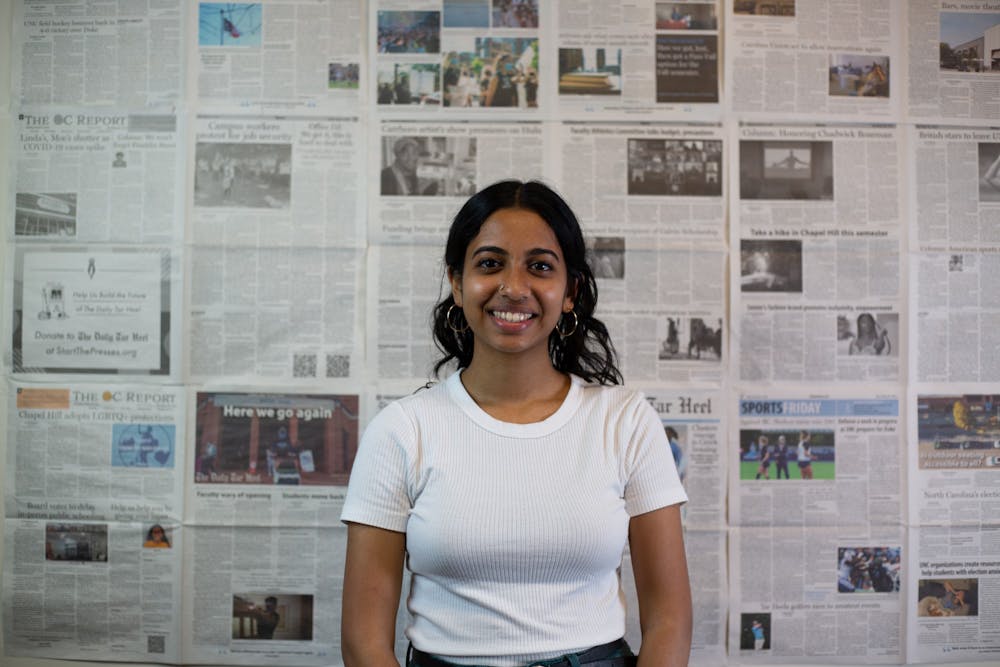I’ve dreaded writing this column since senior year began.
Finding the words to sum up four years of reporting, frustration and friendships — all the while sounding poetic and poignant — seems an impossible task.
In both my introduction column as Elevate editor and my first column of this year, I wrote about my complicated feelings about the paper. I wish I had a more elegant parting note but when I reflect back on my relationship with The Daily Tar Heel, there's one that comes to mind: It’s been complicated.
I joined during fall semester my first year at UNC in 2018. I’d gone back and forth on applying, with a distinct desire to not let my extracurriculars become my entire life and with concerns after reading Leah Asmelash’s own farewell column on the office’s systemic race issues.
I remember sitting on the grass of the quad during orientation — which had been led by three white female editors — with the rest of the University Desk, wondering what my experiences would be like.
I’ve known I wanted to be a journalist since I was 15 — a seed planted from time spent working on my high school’s newspaper, where I was often given free rein to write about whatever I wanted.
But if writing for my high school’s paper was where I learned to be creative and express myself, working at the DTH taught me how to be a journalist — how to ask tough questions and be persistent, to get over yourself when you make mistakes and do better, to understand that you aren’t owed anyone’s story, to think critically as a reporter and look for stories in most anything.
I had opportunities to participate in truly important coverage because of the DTH. I covered the first major protest in Raleigh after George Floyd’s murder; I was able to write alongside professional news outlets to capture the moment the Board of Trustees overturned a 16-year ban on renaming campus buildings; I edited stories that documented both the University’s fumbled plan of bringing students back to Chapel Hill during COVID-19 and the repeated warnings from campus members on why doing so would be a terrible idea.
Undoubtedly, the reason why I received certain professional development opportunities over the past four years is because of the work I did at the DTH.



